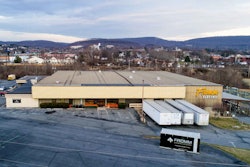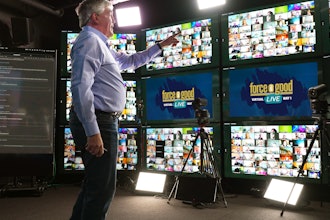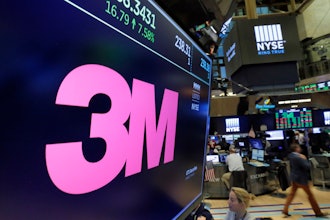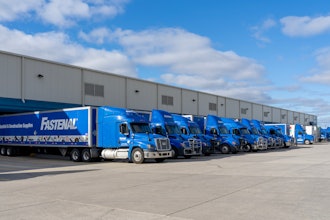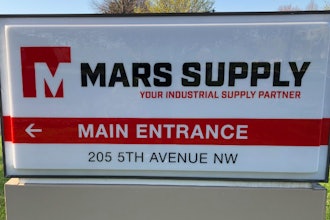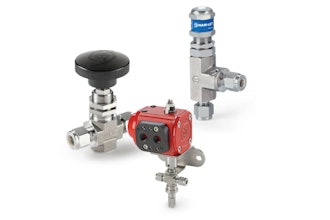It’s no secret that the distribution industry is changing. Technology is rapidly transforming a marketplace that used to rely on word of mouth into one that Tweets. One thing remains the same, however: there is a need for competent sales representatives to grow and represent your brand. As Jack Keough wrote in our March/April issue, “the role of the outside salesperson has never been more important.” While this remains true, the sales role has changed. We analyze that change in this three-part special segment all about the modern sales organization. To read part one, click here. For part two, click here.
While there may not be statistics to prove it, “experienced” is probably the most-used word on job postings in the industry. Every company wants to hire salespeople that know the industry and know how to close sales. The reality is that regardless of how many years a person has been a salesperson in the industrial segment, the industry itself is changing. The right person for the job ten years ago may not be the right person for the job today — and the person you hired ten years ago might need some new training.
There are three areas that distributors need to consider when hiring and training their salesforce: company culture, educational opportunities, and keeping salespeople engaged.
It’s All About Culture
“Culture eats strategy for lunch,” quips Dirk Beveridge of 4th Generation Systems. “We have to focus on the overall culture of the organization.”
While the company culture of the Googles of the world might always be an unattainable ideal for an industrial company, that doesn’t mean that culture is not important at smaller and less tech-savvy companies. In fact, the same culture that makes Google so attractive to hi-tech employees might be a major detriment to attracting the right kind of employees for your business. Determining your company culture – how you want employees to act and dress at corporate headquarters, how you want employees to react in situations where decisions need to be made quickly, and how you want employees to contribute to the company at large – is important. By first determining your company culture, and then hiring employees to fit that profile, you can ensure that the overall goal of the company is going to carry forward in the years to come.
Earnest Machine’s Steve Abbot relies heavily on culture as a determining factor when hiring new employees. “We utilize a culture index survey that heavily plays into screening of candidates. We want people who will be able to think differently and put the customer first at all times. An impressive resume is important, but it is not everything,” says Abbot.
This preventative screening ensures that the company chooses candidates who are a good fit for the company and not just the job. In fact, Abbot notes that many of their employees have been at the company for 20, 30, or even 40 years. Says Abbot: “It is because we make sure that they share our ideals.”
It’s Also About Educational Opportunities
Beveridge says that, if he were an outside salesperson today, he would take every opportunity there was – even going outside of the company and paying for his own development – to attain more education. “The skill sets that are going to be required five years from now are going to be considerably different than they are today,” he says.
Distributors need to be offering opportunities to their salespeople that will help them become the best salespeople they can be in any environment. It definitely serves the goal of the distributor to sell more and to service customers better, regardless of the technological advances or climate of the economy.
“Early on in a salesperson’s career, they should select a specialty and then, with management and supplier support, become the local expert,” says Steve Hartkopf of Aligned Marketing, LLC. “This will differentiate both the individual and the distributor in the marketplace. The results are a distributor that delivers more value, probably higher sales prices, more commissions, and more profits.” The opportunity for training to serve as a brand-builder for a distributor is a big deal in a marketplace where differentiation is key.
While offering great educational opportunities, it is important to remember to also set clear expectations for your salespeople. “A written description of what the company wants to have the salesperson accomplish within a certain time frame is ideal,” says Michael Sklar, Sales Manager at Thunder Group, Inc., a value-added supplier of high-end cookware — a market that sees steep competition and relies on their sales reps to exceed expectations.
Without succinct and measurable goals, your salespeople will be floundering in their new position, never knowing if they are doing well or not. It is important to create actionable, sustainable goals for each of your salespeople, and hold them accountable. The best way to engage a salesperson is to include them in strategic planning — and to share the rewards of any successes.
Engaged Salespeople, Successful Company
“To be truly effective, there has to be a congruence between the way the company operates and the way the salesperson operates, otherwise there will be feelings of frustration and that salesperson will not be there too long,” says Athan.
Salespeople need to be engaged in order to invest their time and energy in a company. Offering them the chance to buy in – either with employee ownership plans or even just through input and brainstorming – allows them to feel like they are part of the organization and part of its success.
“Salespeople want to be recognized for their contribution to the company. To encourage loyalty and longevity, make the salesman feel a true sense of ownership and desire to continue the company’s mission,” says Athan.
We often view the longevity of our employees as a cornerstone piece of data that our organization is succeeding. Beveridge challenges us to flip the issue on its head. If your organization has a loyal staff but is still not successful, maybe longevity is not a good thing for your company. “Longevity and stability can be a good thing or a bad thing. There are some distributors out there who have embraced longevity and stability to the point where it is a negative in their organization. While the business has changed and the market has changed, they have individuals in their organization that have refused to grow,” says Beveridge.
Conclusion
Creating a company culture and educating and engaging your salespeople are just three ways that you can show your employees that you really and truly care. In fact, making sure that they know you care can be the key to building a successful business and keeping customers happy. “People appreciate the fact that we care. We care about them throughout the interview process and the on-boarding process because we want them to succeed,” says Abbot. “Successful employees equals happy customers.”
Of course, in the case of Earnest Machine, it could also be the breakfast cereal. “The morning of a new hire’s first day, we hold a welcome breakfast for them in our break room, featuring their favorite cereal as a child,” says Abbott. Now that is a unique welcome, and something employees are sure to remember well into their careers.






